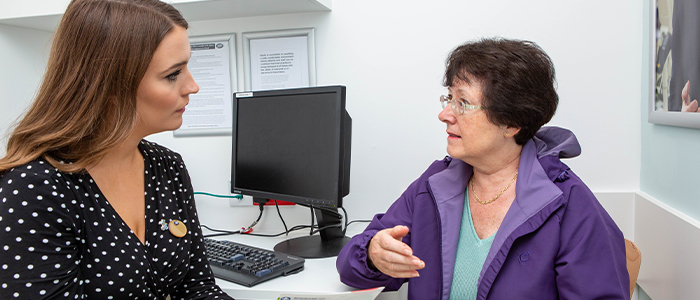Service overview1,2
To help relieve pressure on GPs in England, a new Advanced service is being launched. The Pharmacy First service will enable pharmacists to offer advice to patients and supply NHS medicines (including some prescription-only medicines, where clinically appropriate) to treat 7 common health conditions:
- Sore throat
- Sinusitis
- Acute otitis media (ear infection)
- Infected insect bite
- Impetigo
- Shingles
- Uncomplicated urinary tract infections in women.
A media campaign will accompany the launch of the service which will encourage appropriate customers to self-refer to the pharmacy. Alternatively, they may be triaged and referred by their GP or NHS 111; in these cases, they should be referred on to the pharmacist.
As part of your conversations at the pharmacy counter you may also refer people to the service. If a customer is showing symptoms that may previously have required a visit to the GP, they might now be able to be treated through the new service; for example, a customer suffering from sinusitis following a cold whose symptoms have worsened despite self-care measures. These symptoms may indicate the need for antibiotics and they should be referred to the service for assessment by the pharmacist.
You can also use the service as part of your building loyalty stage of The Boots Healthcare Way. For example, if a woman is suffering from a mild urinary infection, you could advise her to take paracetamol and plenty of fluids and return in 48 hours if symptoms persist or worsen, at which point you could refer her on to the service.
When a medicine is supplied as part of the service, an NHS prescription charge per item will be charged, unless the patient is exempt from prescription charges.
| The introduction of the Pharmacy First service is likely to increase the number of customers with an infection attending the pharmacy. This means you need to be even more vigilant for signs of sepsis, which is a life-threatening reaction to an infection that happens when the immune system overreacts and starts to damage the body's own tissues and organs. If you see any of the following symptoms, refer to the pharmacist immediately:3
|

